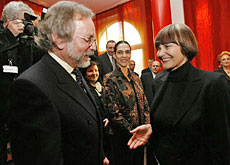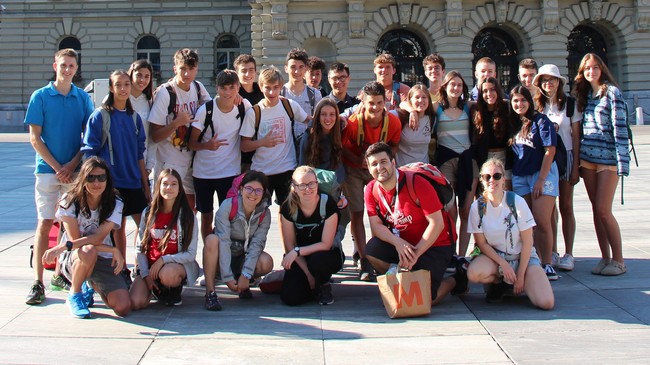
Brussels seeks fair deal in tax row

The European Commission's senior representative to Switzerland has called for a resumption of dialogue in an ongoing row over corporate tax breaks.
Michael Reiterer, who is about to take up his new post as ambassador in the Swiss capital, Bern, said that Brussels had no interest in the dispute heating up.
However, Switzerland had to show willingness to consider the arguments put forward by the commission, he told journalists in Brussels on Monday.
Reiterer did not go into specifics but his comments are seen as a hint that Brussels expects the 26 Swiss cantons and the federal government to adapt their fiscal policies.
Cantons, which are autonomous in tax matters, were not likely to suffer major losses, he added.
Brussels and Bern have been at loggerheads for more than a year over low corporate taxes some of the cantons use to attract new companies, including firms from European Union countries.
The Swiss government has made it clear in recent months that a low tax regime is not in breach of a 1972 free trade agreement.
“Attacking cantonal taxation is the same as attacking Swiss sovereignty,” said Finance Minister Hans-Rudolf Merz last week.
Brussels has been considering moves to put non-EU member Switzerland under pressure. Reiterer said he would try to encourage new talks because it was not in the interest of Brussels to escalate the dispute.
“But I won’t be able to bring about radical changes by myself,” he said.
The tax issue has been front-page news again over the past few weeks after a French parliamentarian attacked the system of lump sum taxation for foreign residents in Switzerland.
The case in point was French pop legend, Johnny Hallyday, who recently moved to the Bernese resort of Gstaad to avoid the burdensome tax regime of his home country.
Explanation
Reiterer says his role in Switzerland will be to explain how the EU works, but not to convince Swiss citizens of full EU membership.
He is planning to meet members of the cantonal authorities as well as representatives of major associations and organisations as part of his mandate as head of a ten-member delegation based in Bern.
He said Switzerland had chosen to build its relations with Brussels on a series of bilateral accords.
The country is already a “de-facto member” of the 27-nation bloc, according to Reiterer. He regretted that Switzerland has not been taking part actively in discussions on the future of Europe.
He said the Swiss government’s policy paper on Europe was a sound basis, but it lacked a long-term perspective. The report published last year, considers full EU membership as a long-term option rather than a policy aim.
swissinfo with agencies

More
Taxation
Reiterer, who was born in Austria, is the first European Commission head of delegation to Switzerland. The office in Bern is officially due to open in mid-March.
Since 2002 Switzerland has concluded 16 bilateral accords with the EU on issues including trade, labour, transport, taxation, border security and science.
Moves are underway to negotiate a free trade accord on agriculture and a deal on electricity.
Switzerland’s 26 cantons are free to set their own tax rates within the framework of the Tax Harmonisation Act, in force since 2001.
Selected cantonal corporate tax rates from a KPMG report published in November 2006: Obwalden 13.1%, Schwyz 15.6%, Zug 16.4%, Zurich 21.3%, Graubünden 29.1%.
The 1972 Free Trade Agreement states that: “any public aid which distorts or threatens to distort competition by favouring certain undertakings or the production of certain goods” is “incompatible with the proper functioning of the Agreement”.

In compliance with the JTI standards
More: SWI swissinfo.ch certified by the Journalism Trust Initiative
















![The four-metre-long painting "Sonntag der Bergbauern" [Sunday of the Mountain Farmers, 1923-24/26] had to be removed by a crane from the German Chancellery in Berlin for the exhibition in Bern.](https://www.swissinfo.ch/content/wp-content/uploads/sites/13/2025/12/01_Pressebild_KirchnerxKirchner.jpg?ver=cb688ed5)














You can find an overview of ongoing debates with our journalists here . Please join us!
If you want to start a conversation about a topic raised in this article or want to report factual errors, email us at english@swissinfo.ch.